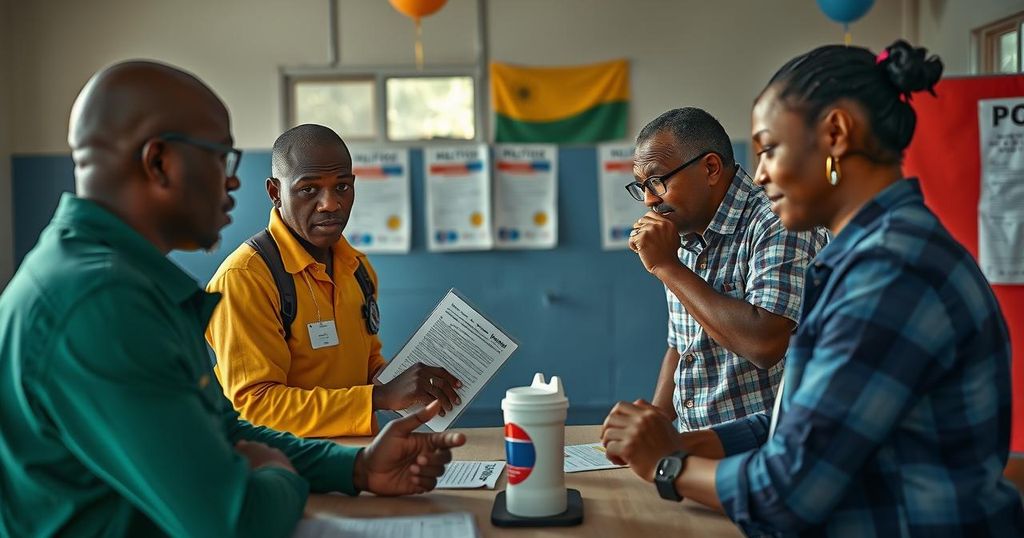Mauritius held its parliamentary election with a significant emphasis on alleviating the cost of living crisis. Prime Minister Pravind Kumar Jugnauth and opposition leaders presented various economic reforms aimed at aiding the population. Polling began at 7 a.m. local time, and over a million voters were expected to participate, highlighting the importance of the youth vote in determining the election outcomes.
On Sunday, Mauritius conducted its parliamentary election, with voters primarily concerned about the prevailing cost of living crisis. Prime Minister Pravind Kumar Jugnauth and his key adversaries proposed measures to alleviate economic pressures in the Indian Ocean nation. Polling commenced at 7 a.m. local time and was anticipated to conclude by 2 p.m. GMT, with over a million people expected to cast their votes for 62 parliamentary seats from among 68 parties and coalitions. The island nation, home to approximately 1.3 million residents, promotes itself as a crucial link between Africa and Asia, relying heavily on its offshore financial services, tourism, and textile industries for revenue. Although economic growth is projected at 6.5% for this year, many citizens express dissatisfaction with their financial circumstances. Jugnauth’s Alliance Lepep coalition pledged to raise minimum wages, enhance pensions, and reduce VAT on essential goods, emphasizing the economic growth achievements. The opposition coalition, known as Alliance du Changement, led by Navin Ramgoolam, proposed similar social improvements, including increased pensions and the introduction of free transport and internet services. Political analysts note that the youth demographic may significantly influence the election outcome, as they seek innovation and job creation. Last week, Jugnauth’s administration temporarily banned social media, citing national security concerns, which led to backlash from opposition parties. The election results will determine the composition of the parliament and the next prime minister.
Mauritius stands as a crucial economic player in the Indian Ocean, showcasing a vibrant link between Africa and Asia. The economy has thrived on sectors such as offshore finance, tourism, and textiles, positioning the island as an emerging market. However, despite projected economic growth, the citizens have voiced concerns regarding the tangible benefits of such growth amid rising living costs. The upcoming parliamentary elections provide an opportunity for political reform and response to public needs, particularly among the younger voter demographic.
In conclusion, the parliamentary election in Mauritius reflects the pressing challenges of the rising cost of living that the electorate must address. The discourse surrounding economic reforms, pension increments, and additional social services underscores the critical priorities for voters. As the nation awaits election results, the stakes remain high for both the ruling coalition and the opposition, with future governance potentially hinging on the interests and votes of the country’s youth.
Original Source: www.sowetanlive.co.za







